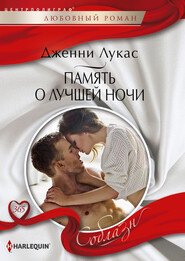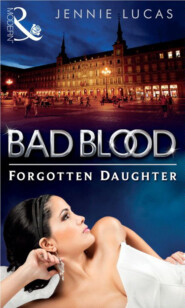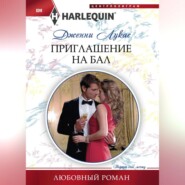По всем вопросам обращайтесь на: info@litportal.ru
(©) 2003-2025.
✖
Chosen As The Sheikh's Royal Bride
Автор
Год написания книги
2019
Настройки чтения
Размер шрифта
Высота строк
Поля
Dr. Farraday was different from all of them. She was neither a cool blonde nor a sensual, sloe-eyed brunette. Her long, lustrous hair was somewhere between dishwater blond and light brown. She had a dusting of freckles over her snub nose. Her heart-shaped face was rosy, her lips full and pink, and her eyes—it was too far to see the color, but they were glaring at him now in a way he felt all the way to his groin.
But if her face was innocently wholesome, her body was the opposite. She was a bombshell. That dress should have been illegal, he thought. Clinging to her curvaceous body, the silk whispered breathlessly that, at any moment, it might fall apart at the seams, and leave her incredible body naked and ripe for his taking. In that dress, Dr. Farraday could rule any man.
Or maybe it was just him. Looking at her in the brighter lights of the ballroom, all he could think about was taking her straight to his bed. Her skin, when he’d briefly touched her shoulder, had been even softer than silk. He could only imagine what the rest of her would feel like, naked against his own.
He took a deep, hoarse breath.
Omar could not seduce her, or any other woman here. The bride market was not about casual, easy seduction. In spite of Dr. Farraday’s remark about reality shows, it was a serious tradition, not an episode of The Bachelor.
The only way he would have the luscious Dr. Farraday in his bed would be after marriage. And she had far more to recommend her than just mind-blowing sex appeal. Her résumé had stood out from the other nineteen, because she was a research scientist specializing in the same childhood leukemia that had killed Omar’s older brother, long ago.
But if he hadn’t read that, he’d have had no idea that the woman had graduated from Harvard at nineteen with both an MD and a PhD in biochemistry. At twenty-six, she already led a team in Houston, doing bleeding-edge research. Edith Farraday rarely left the lab, he’d heard.
Someone like that should have been daunting, cold, formidable. But Dr. Edith Farraday didn’t act like her résumé. She was so different in person, Omar thought, that she almost seemed an entirely different woman.
She was warm, kind, self-effacingly funny. Even though she was different from his usual type, he was overwhelmingly attracted to her. Or maybe it was because she was so different.
Omar blinked when he heard the whispers in the ballroom suddenly explode, as a low rumble of shocked noise swirled around him. He’d been recognized by the other women in the ballroom. Without a word, he turned and disappeared back into the garden, and then to his private quarters in the residence.
But at the end of the evening, he stood alone in the upstairs salon, watching through the window as, below him, all twenty of the would-be brides climbed into limousines waiting to take them back to the luxurious, five-star Campania Hotel on the avenue Montaigne.
“The things I do for you, Your Highness.” His vizier’s voice came behind him. “Are you ready yet to just be sensible and marry the al-Abayyi girl?”
Not dignifying that question with a response, Omar turned. “You’ve made your decision which ten will be sent home?”
“It wasn’t easy.” Khalid paused. “Except for the last one. I barely spoke ten words to her before I knew she wasn’t your type.”
He was speaking of Dr. Edith Farraday, Omar realized, and said irritably, “I don’t have a type. Why does everyone think I have a type?”
“Because you do.”
Omar replied, annoyed, “And Dr. Edith Farraday isn’t it?”
“Beautiful girl, but a little too common for you, I thought. She’s put on weight since her last published photographs, too. Her dress looked outrageously tight.” Khalid blinked. “Am I wrong?”
Omar stared back out the window. He watched as Dr. Farraday got into the last limo. She looked back up wistfully at the mansion, as if she knew that she’d never come back, as if trying to remember everything.
It doesn’t take luck to fail, she’d said. I fail at everything. I’m a pro at it.
What a strange comment for a world-famous genius to make, he thought. Because she hadn’t yet found a cure for biphenotypic acute leukemia, all her accomplishments meant nothing?
But she would understand, as few could, how it felt to be single-minded in pursuit of one’s duty—for her, curing cancer, for him, the responsibility of leading a nation.
Common, Khalid had called her. And he was right. Edith Farraday didn’t have the imperious edge, the formality, the arrogance of a queen. She was unorthodox, a little undignified, and yet...
And yet...
Omar wanted her. Suddenly, and beyond reason.
No. A pulse of danger went through him. Any of the other women would be a safer choice, even Laila al-Abayyi. Because he could not, dare not allow emotion into this choice. Never again. The cost of loving, of wanting, was too high—it brought destruction, not just on him but upon innocent people.
In spite of knowing this, though, Omar gripped the edge of the translucent curtain as he watched the limo drive out past the gate. Dr. Farraday had warmed him in the garden. Warmed?
The image passed through his mind of her voluptuous figure, her full breasts pushing up against the ruched silk, fighting a battle for modesty and losing. Her eyes sparkling in furious indignation as she’d glared at him across the ballroom, unconsciously licking her full, pink lips—
A rush of heat went through him, straight to his groin. He nearly groaned aloud.
But he could not seduce her. He could not even kiss her. Not unless and until he formally proclaimed her his bride on the steps of his royal palace in Samarqara.
And he could never choose Dr. Farraday as queen. Khalid was right. She was too open, too honest, too sexy. Not at all appropriate. So he should send her away. At once, if not sooner.
“Sire?” his vizier asked. “Shall I send the Farraday woman home?”
But as Omar turned, all he could think about was how seeing her in the cold, dark garden had been like seeing the bright, warm sun after a long-dead winter. And he heard himself growl, “One more night.”
CHAPTER TWO (#u6ebb7f7b-6485-55a5-a993-3773cf9efb36)
SO THAT WAS THAT.
The next morning, when Beth heard the hard knock at the door, she lifted her backpack to her shoulder and looked at her luxurious hotel suite one last time.
In the soft morning light, the suite looked magical, like a princess’s bedchamber, with a fireplace and four-poster bed, a wrought-iron balcony edged with pink flowers, and a white marble bathroom bigger than her whole studio apartment back home. She’d taken pictures to show her friends back at the thrift shop.
Outside, the morning sun was soft over Paris. Beneath the Eiffel Tower, white neoclassical buildings glowed as pink as frosted cupcakes. She saw birds flying over the avenue Montaigne, soaring over the fresh blue sky.
Beth looked at her hoodie and jeans, which had been freshly cleaned and pressed by the hotel staff overnight. Unlike the other brides, she’d traveled light, with only a backpack, which was now stuffed with her neatly folded silk cocktail dress from last night. The king’s staff had made it clear they didn’t want it, and she knew someone at the thrift shop certainly would.
She took a deep breath. She was glad to be returning home. She didn’t belong here, in this glamorous world.
Her place was in her Houston neighborhood, in her studio walk-up apartment near the community college, where she’d been taking part-time classes until her heartbreak over Wyatt made her drop out. Since then, her part-time job at the thrift shop had become full-time, and she biked to work each morning, rain or shine, because she couldn’t afford car insurance, much less a car. She sometimes worked extra jobs to make ends meet, and in her spare time, she volunteered at the local soup kitchen, the food pantry and the senior center. That was the life she knew.
But Beth wanted to remember this Paris adventure, down to the last moment. Because she knew it would never happen again.
After her shock last night, realizing she’d been talking to the actual king the whole time in the garden, she’d expected to be awake all night, agonizing about what an idiot she’d been. Instead, she’d slept like a log, wrapped in soft cotton sheets that had a thread count higher than her paycheck. After a long, hot shower that morning in the palatial bathroom, she’d eaten breakfast in bed, brought by room service, with toasted baguettes called tartines slathered with butter and marmalade, and fresh, flaky chocolate croissants that melted literally like butter in her mouth, and drunk fresh-squeezed orange juice and strong coffee with fresh cream.
But her time as a princess was over. When her phone buzzed an hour before, she hadn’t even bothered to check the message. She already knew what it would say: she was being sent home.
Now, the knock. She hesitated, staring at the door. Once she answered it, she knew she’d find a servant waiting to escort her to the minibus that would take her back to the airport, along with the rest of the rejected ten. How could it be otherwise, when after criticizing a famous movie star, Beth had actually insulted the king as well—right to his handsome, sensual face?
Beth flinched, remembering how stupid she’d felt when she’d finally spoken to the man on the throne, only to discover it was just a regular chair, and the man was just a vizier and that only the ten women to make the next cut would have the honor of actually meeting the king in person.
“But where is he now?” she’d asked as a creeping suspicion built inside her.
The vizier replied with a disapproving stare, “His Highness is busy with affairs of state.”
And then, like a flash, Beth had known.
Why aren’t you in the ballroom?

















